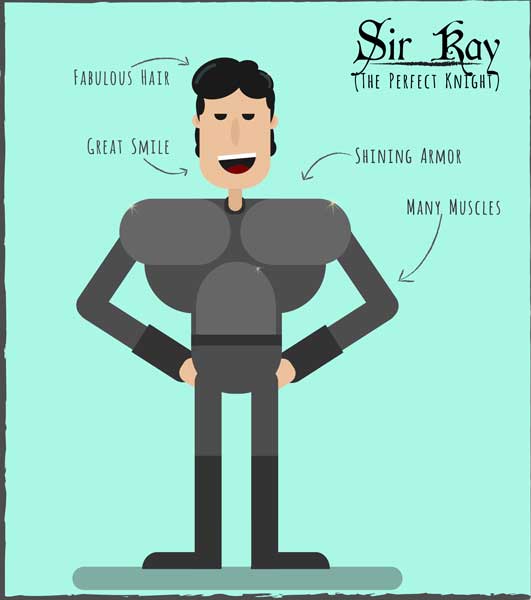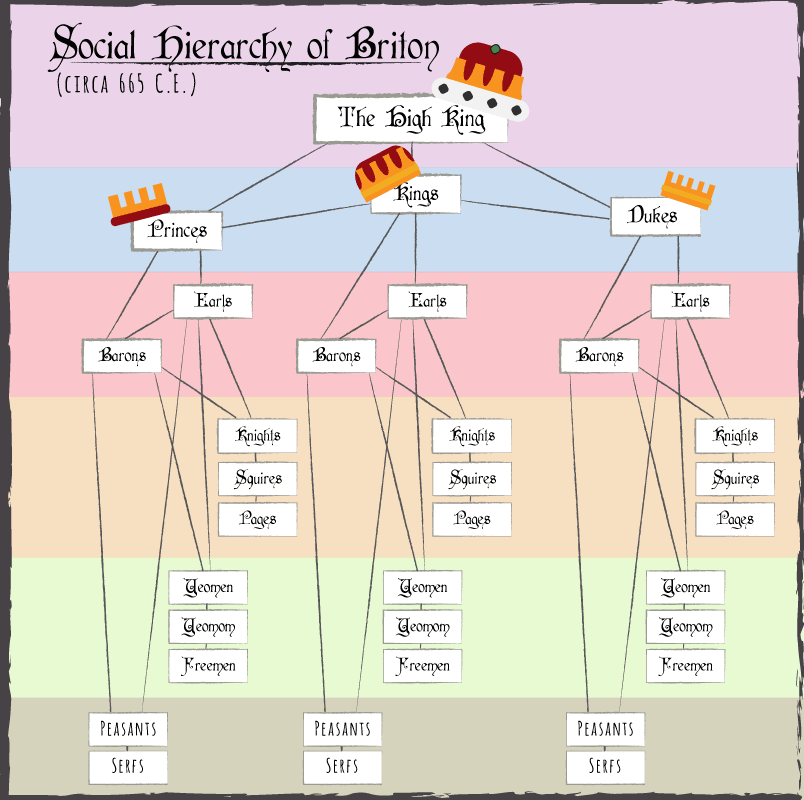OK. So. It wasn’t all fun and games for Kay and Arthur. Not long after they met the Goblin King, Sir Ector knew it was time to really attend to the boys’ education. For Kay, that meant becoming a knight. Eventually.
See, it’s not like you can take a two-week course and—BOOM!—knighted. Nor can you just race down a beach with Sean Connery or go through a five-minute training montage.
It takes fucking years, man.
Pages
First, to become a knight, you have to be a boy (because misogyny was alive and well).
At around seven years old, a boy would become a padawan page. This is when his education would really begin. Like I said, Kay and Arthur were taught under La Méthode de Chevalier Français, and they learned all the shit I mentioned there. Oh, and they helped the squires out with shit.
 Literally, I mean helping with the shit. You may think castles are clean, fancy places, but that’s only because there was usually a phalanx of boys around to clean up all the various animal excrement at any given time. There was:
Literally, I mean helping with the shit. You may think castles are clean, fancy places, but that’s only because there was usually a phalanx of boys around to clean up all the various animal excrement at any given time. There was:
- horse shit
- cow shit
- pig shit
- pony shit
- a variety of crap shat out of the birds a typical nobleman would keep (hawks for hawking, pigeons for messaging, chickens for eating, ravens because they’re fucking menacing)
- people shit
- dog shit
- rat droppings
Squires
At about age 12 or 13, a page would be promoted to a squire once he had sufficient training and if he showed a glimmer of intelligence. (Or, in the British School of Knight-Making, he’d be promoted if looked to be a rather brutish thug.)
Squires were glorified man-servants to knights. A squire was be expected to:
- keep his knight’s horse clean and functional (hence the need for all those shit-cleaning page boys)
- keep his knight’s armor squeaky and shining, and assorted weaponry in working order
- help dress his knight
- serve his knight food and drinks
- be ready to act as a knight himself, should his master fall in the battlefield (or, more likely, die from a hangnail)
You may be thinking (or, probably not—I don’t know how you think, TBH): Can’t a knight do anything for himself? Well, he can. If he wanted. But then he wouldn’t be properly training his squire, would he?
Anywho, squires put up with this because in exchange they received the Dark Ages equivalent of mad money: a place to stay, food, booze, ladies, and clothing with minimum fleas.
Knights
To finally becoming a knight, a squire had to be of the minimum age (15 and five-eighths) and meet any of these qualifications:
- If a knight fell in battle, the squire would get his master’s armor and weapons and horse and be expected to carry on in his place.
- A squire bred a sufficient amount of corgis.
- He or his family had to be rich enough to buy his own horse, armor, and weapons; and his family had some sort of social standing (Yeoman was the absolute minimum).
A squire would go to his local nobleman once he met any of these qualifications. The nobleman, provided he was at least a Baron, would bash a sword at the squire’s shoulders, and BOOM! Knighted.

Arrogance level = Steve from “Stranger Things”
Kay was knighted on his 16th birthday. Sir Ector bought him the shiniest new suit, a very large horse, and a sword forged by the finest blacksmith (read: the only blacksmith) in their village. Arthur, who wouldn’t turn 15 for another few months, became his brother’s squire.
Ector took it upon himself to do the knighting. Afterward, there was much drinking and toasting—except for Arthur, who had to stay sober enough to fetch Sir Kay another round.
TL;DR
Fine. Here’s a training montage.

